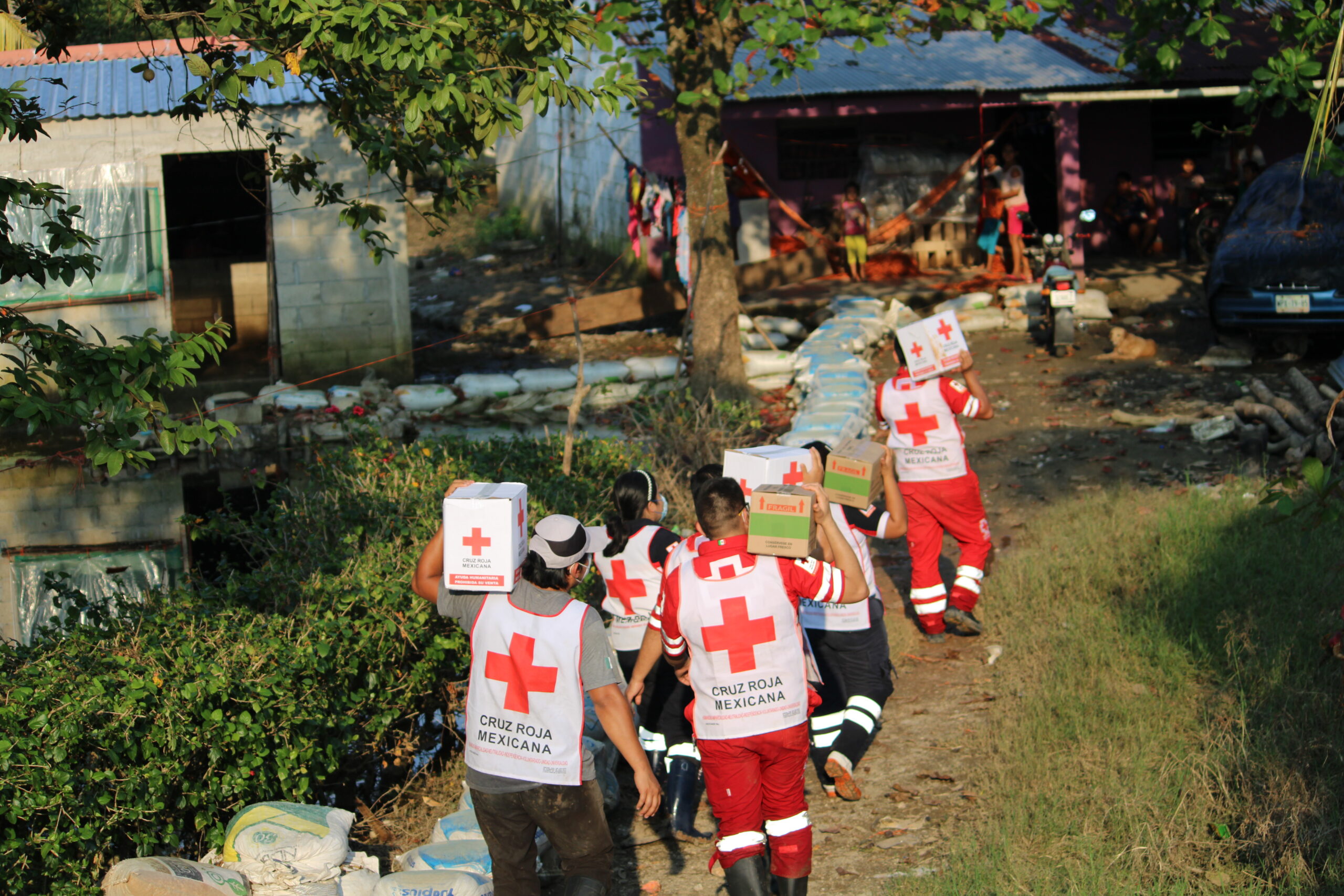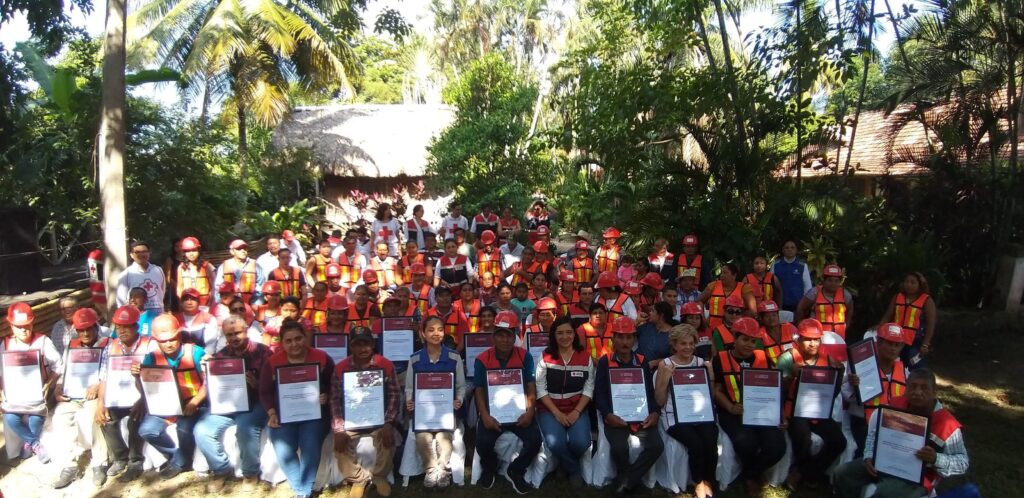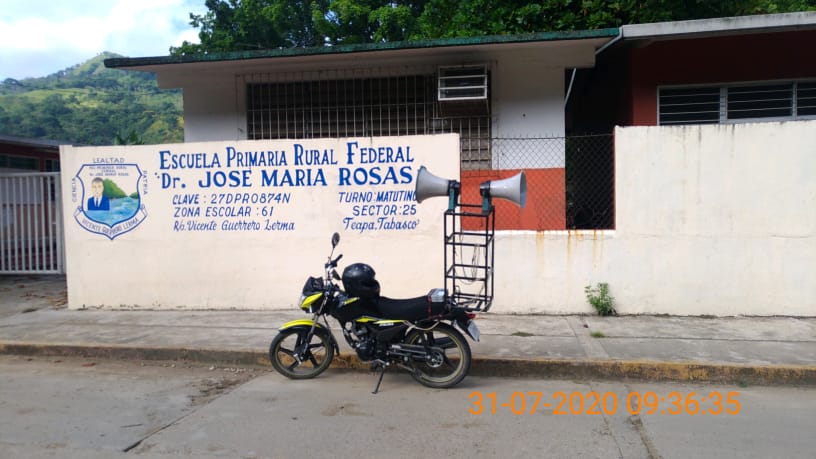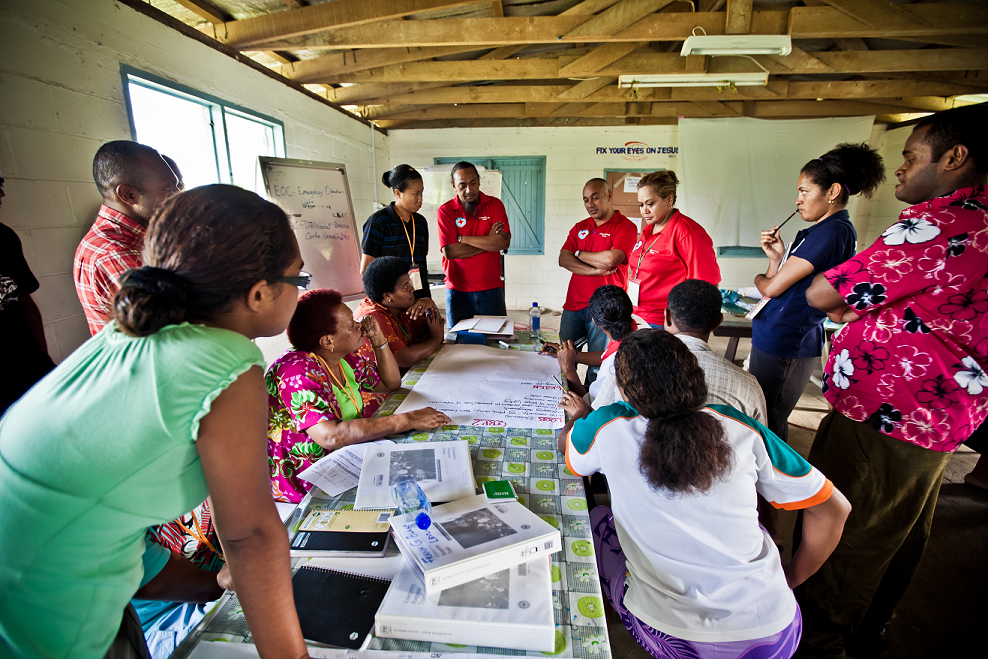Never stop learning: ten years of the Flood Resilience Alliance in Mexico

At the heart of the Zurich Flood Resilience Alliance’s work is the knowledge that there are always opportunities to adapt and improve. In the second of our series marking ten years of the Alliance’s resilience action, the Mexican Red Cross team reflects on the benefits this approach has had in Mexico.
The Mexican Red Cross was founded in 1910 and has since been recognized as a leader in pre-hospital medical care and disaster response. The inception of the Alliance over a century later (2013) marked the first time that our traditionally response-focused organization launched long-term community preparedness and resilience actions.
The Tabasco region was chosen as the initial focus of the Flood Resilience Project due to its high susceptibility to flooding – including the 2007 flood that left most of the state under water. In collaboration with the International Federation of Red Cross and Red Crescent Societies (IFRC), a founding member of the Alliance, the project has been implemented by the Mexican Red Cross since 2013.
The last ten years have taught us a lot about resilience-building, including the fact that for it to have a truly lasting impact, it is essential to always be adapting and improving your approach.
Overcoming the challenges of transition
While reducing the risk of disaster through community resilience is a key pillar of the Red Cross Movement, which aims to alleviate human suffering, the transition from response to community preparedness required not only reflecting on how we see disasters, but also changing our approach to community engagement. It required a rethinking of institutional protocols related to volunteering, community work, safety trainings, health and even administrative processes.
Alongside the internal changes of ways of working, over time the public perception of the Mexican Red Cross has also shifted. Ten years of experience in the field have positioned the Red Cross as a national focal point for integrated risk management and the team is now invited to participate in sub-national, national and regional dialogues and initiatives, in particular to share our experience in the area of community level resilience-building.
“Ten years is a long time to learn, to evaluate, to change … this continuity of programming allows wisdom and knowledge to be shared, not only within the project in Mexico itself, but also with others. And to be able to continue for 10 years is a contribution that the Mexican Red Cross has made to the whole Alliance.”
Lucile Robinson, Knowledge Manager, Zurich Flood Resilience Alliance.
Playing to our strengths
Long before the Alliance, the Mexican Red Cross has maintained strong bonds of trust with communities across the country, which is vital to achieving lasting change. The success of the Flood Resilience Project required what the organization does best: teaming up with communities to address the needs of the most vulnerable people. A significant change for the Mexican Red Cross has been the integration of community volunteers into the operational structure of the organization, thus centring the population itself as a key actor and partner in building community resilience.
For the Red Cross, building resilience focuses on people’s knowledge and skills. The project prioritizes community participation and social cohesion to generate a sense of ownership of preparedness actions, promoting the recognition of resilience building for the benefit of those affected. Mutual respect, teamwork and reflection on the environment are generated and reinforced, resulting in decision-making for the good of the family and the population as a whole.
The benefits of this deep engagement at the local level can be seen in the response to the 2020 floods in Tabasco. Community brigades formed and trained through the project helped to accelerate access to humanitarian aid and improve equitable distribution among the population.

“The legacy that the Zurich Flood Resilience Project has built is important – [the Mexican Red Cross] has moved forward and evolved alongside the project… Ten years of building and reinventing ourselves and improving our methods has allowed us all to learn. We have worked together to improve the tools we use, but, above all, have learned to take better advantage of them and to increase our own efficiency.”
José Antonio Monroy, General Director, Mexican Red Cross
Sharing learnings for impact at scale
Thanks to the long-term nature of the Alliance, and the flexibility to adapt and improve over that time, the learnings of the project in Tabasco have been adopted into other Red Cross initiatives, including other important projects to increase resilience to earthquakes and hurricanes. At the institutional level, the evolution of the Flood Resilience Project was key to the creation of the National Program for Disaster Risk Reduction, whose objective is to generate institutional guidelines to support all Mexican Red Cross delegations in the implementation of resilience actions.
The work has also been acknowledged by regional and national governments. The community brigades formed and trained through the project have been formally recognised by the State Civil Protection Institute and the role of the local community in organised groups has been included in the State Development Plan. In 2019, the community brigades were presented with the National Civil Protection Award and the experience of this intervention has contributed to the development and implementation of the National Strategy for Resilient Communities.
Expansion to a new region of Mexico in 2021 led the team to adapt existing community intervention frameworks from a rural context to an urban context, presenting further opportunities not only to disseminate resilience learning but also to generate new knowledge.
The learning journey continues
Since 2013, the Flood Resilience Project has directly benefited more than 10,000 people in Mexico, with a further 300,000 indirectly benefited through large-scale communications, training and replication.
The long-term nature of the Alliance’s work has been integral to the successes seen in Mexico; it is valuable to be able to reflect on more than a decade of progress and know that there is still potential for more to come. Challenges along the way – the COVID-19 pandemic, for example – have provided opportunities to review and refine our approaches in order to achieve maximum lasting community impact. The Alliance is committed to continuous learning and improvement, and in Mexico we will continue to play our part.
This blog was written by Brenda Ávila Flores, Gabriel Reyes, Jimena Cuevas and Cale Johnstone and originally published on the Flood Resilience Portal of the Zurich Flood Resilience Alliance. Please find the original story here. If you want to learn more about the experience of flood resilience work in Mexico you can watch this video, read this case study or have a listen to this podcast.



